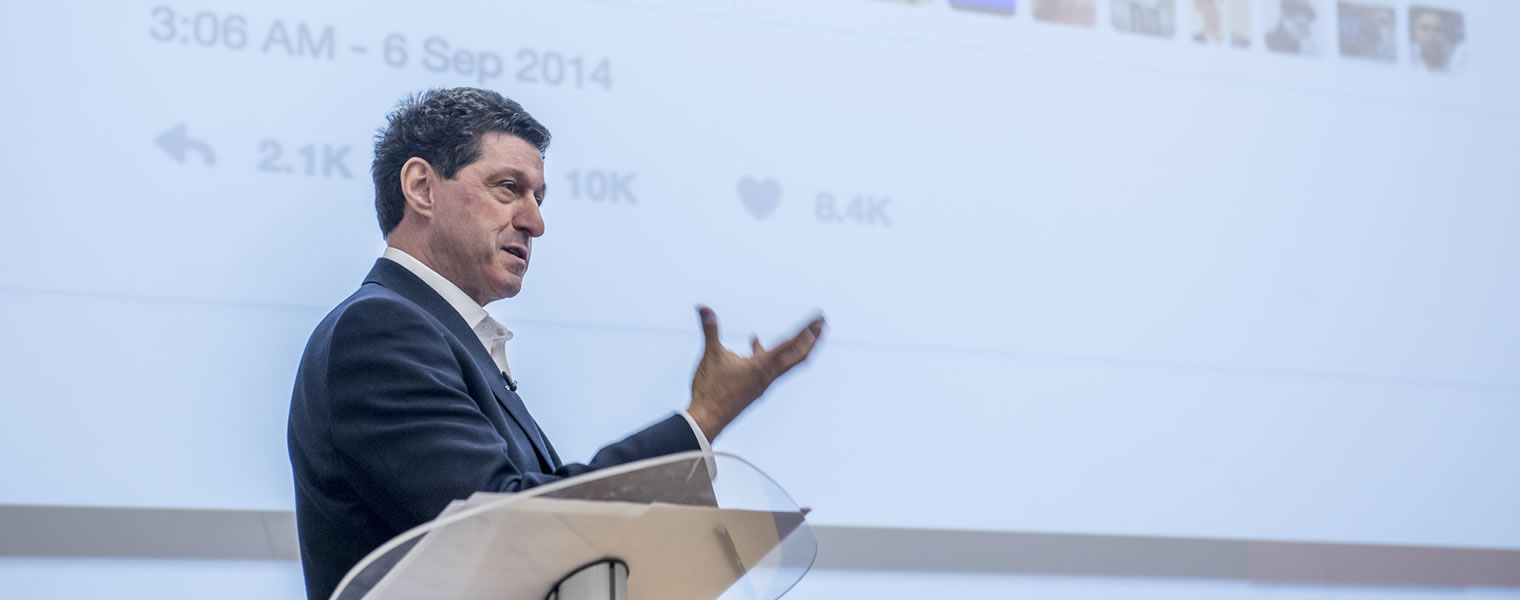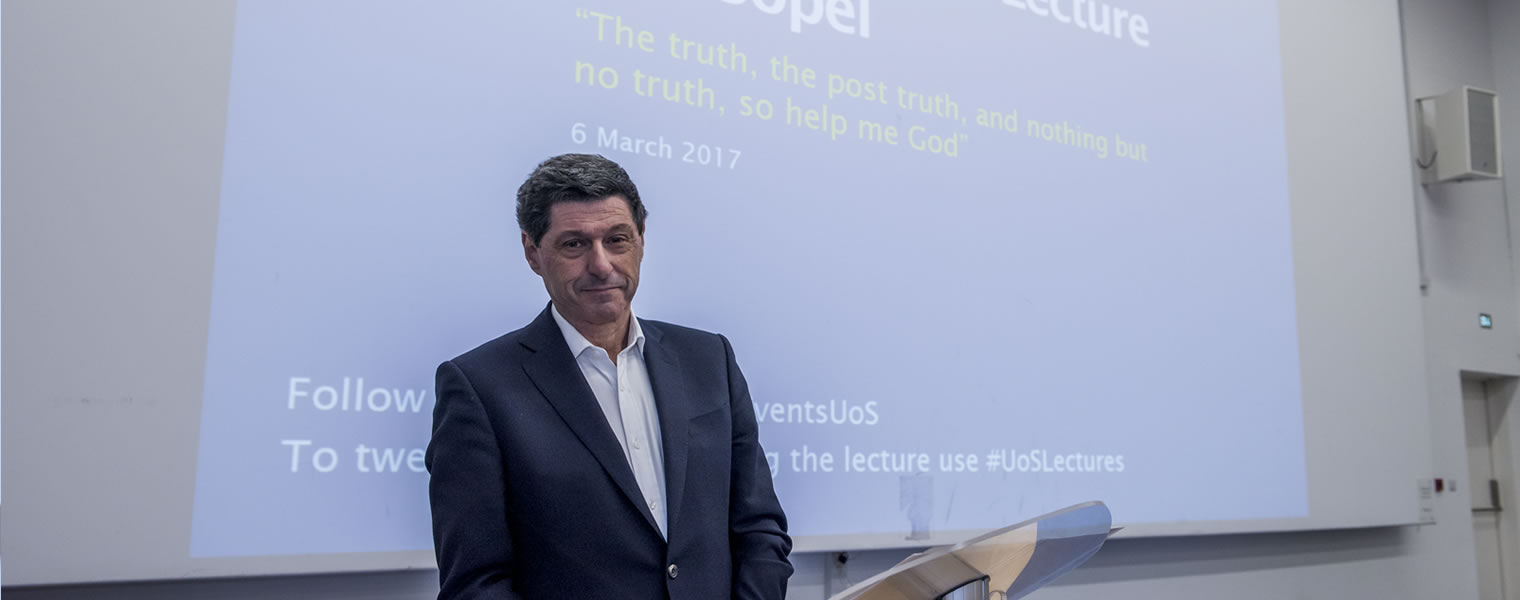Hartley News Online Your alumni and supporter magazine
Last month, alumnus, Jon Sopel (BSc in Politics and Sociology, 1981), University Pro-Chancellor and BBC North America Editor, visited the University for his Distinguished Lecture: The truth, the post truth, and nothing but no truth, so help me God.
Southampton Connects Staff picks five standout facts from the evening about Jon, Trump and the culture of fake news.
1. Fake news will be commonplace in future elections
Fake news was a primary focus for Jon in his lecture, but he made it clear that if the issue is not challenged, fake news will be adopted as a strategy in future elections, further changing the relationship between politics and the media.
Jon said: “In the run up to the election, more people were engaging with fake news on Facebook than were engaging in real news.”
Various groups were to blame for this content generation, including Macedonian students using it to fund their education by obtaining advertising revenue from click-throughs. In the future, if the issue of fake news is not challenged, it will be used as a campaign tool by political parties to change the environment and influence what people think.
2. Trump ‘needs an enemy’
Jon outlined President Donald Trump’s argumentative nature throughout his campaign, drawing on insults and accusations about his competitors in both the republican nominations and the final presidential race.
Now that he is President, Donald Trump has turned his attention towards his next greatest competition, which appears to be the media and journalists.
Jon says: “I think he needs an enemy, and I think at the moment the Democratic Party is not that strong, so the media is the enemy.”
3. Trump’s use of twitter and accusatory remarks are not just impulsive; it’s a diversionary tactic, and it’s nothing new.
With Trump’s recent phone-tapping allegations towards predecessor Barack Obama, it raises the question about whether Trump’s controversial tweets are lapses in control, or part of a carefully thought-out distraction tactic.
“We’ve got to work out what it is that he is saying that is really, really important, and what it is that you can maybe take slightly less seriously,” Jon says, “which is a very odd and unique position to be in when you’re talking about the President of the United States of America.”
Although accusations and inflammatory statements on Twitter may be a lapse of control, there are people around Trump who would be able to see opportunities for distraction and diversion of attention. It is also, Jon outlined, a way for Trump to speak directly to the American people.
However, the removal of the media as a ‘middle man’, and the ability to speak directly to the population of America and, indeed, the world, is nothing new. Jon explained that Trump’s use of Twitter is very similar to Franklin D Roosevelt’s ‘Fireside chats’ which were used to enable communication with the public without mediation. Trump’s tweets become more influential the more he discredits the media.
4. Journalism is now at its most important
The role of the journalist is now not only about delivering information, but is now key for a democratic nation.
During his lecture, Jon outlined that in the grand scheme of things, journalism is not saving lives, though journalists who put themselves in dangerous situations are heroic. However, he made it clear that journalism is essential for an informed and educated community.
He says: “I have never thought that journalism – good journalism – is as important as it is today. I think that a democracy thrives on people who are well informed; on people that understand some of the issues that are there, and the choices that need to be made.”
5. New technology is a threat to journalism, but not in the way we expected.
Journalists now are facing a challenge against ‘citizen journalists’, members of the public uploading content, hackers, algorithms, extremists and fake news.lic uploading content, hackers, algorithms, extremists and fake news.
Technology once was considered a potential threat to the media industry through its instantaneous nature and its power to render traditional print journalism obsolete. However, Jon explained that we were wrong, once again going back to the topic of fake news:
“We thought that with new technology people would migrate, people wouldn’t be interested in the conventional news bulletins and newspapers or factual news. What no one foresaw was that mendacity involved fake news.”
Algorithms, the formation of an online ‘echo chamber’ and the ability for anyone to create and publish opinions as news is the true threat to quality journalism.
Hear more about these topics and watch Jon Sopel’s whole lecture online below.

